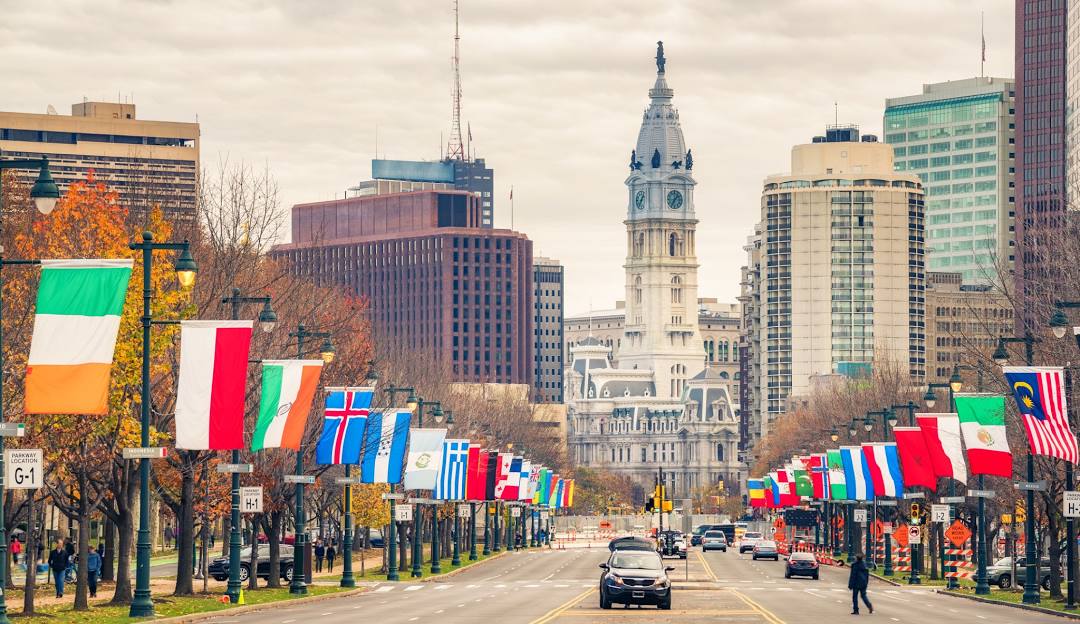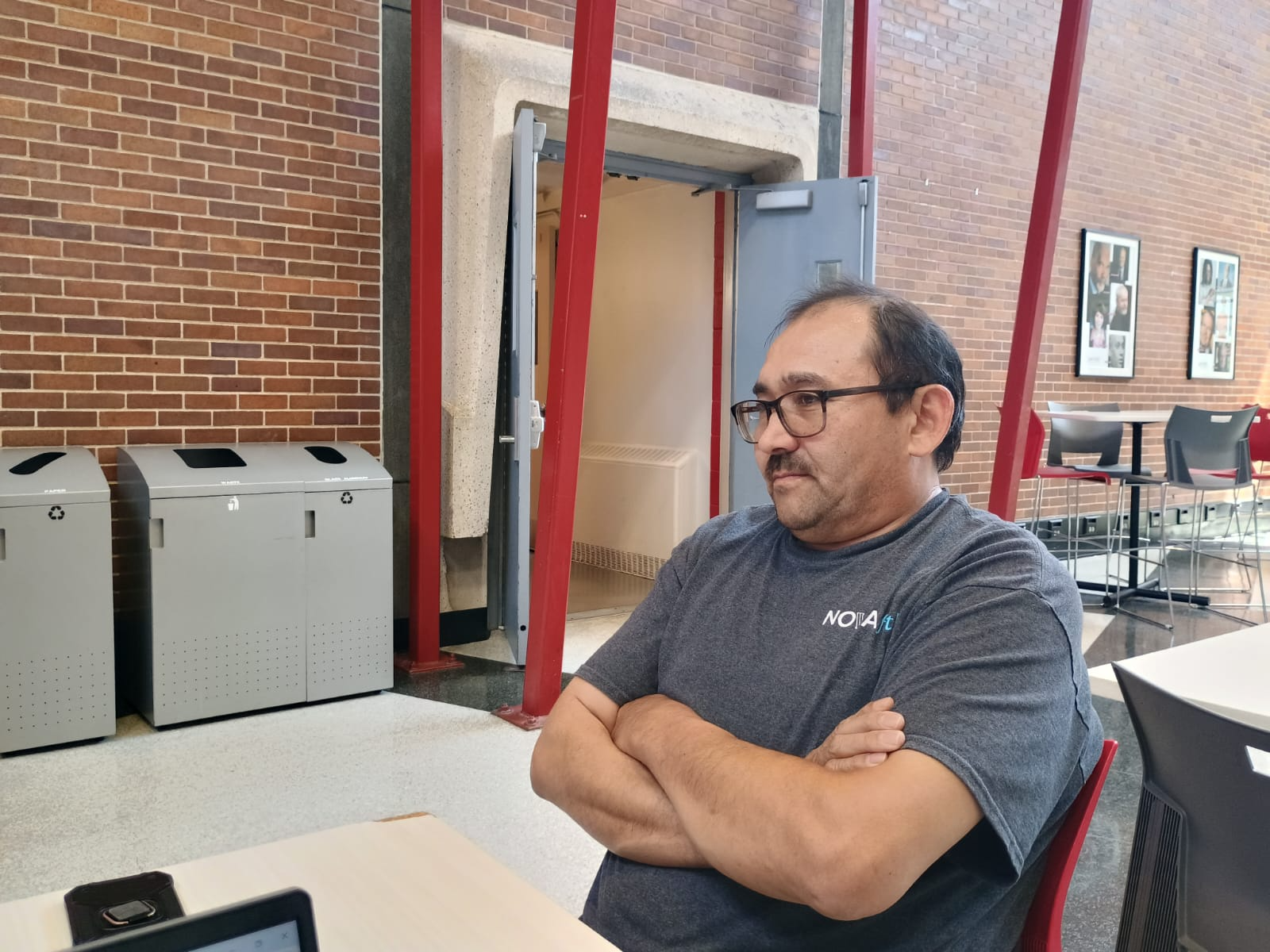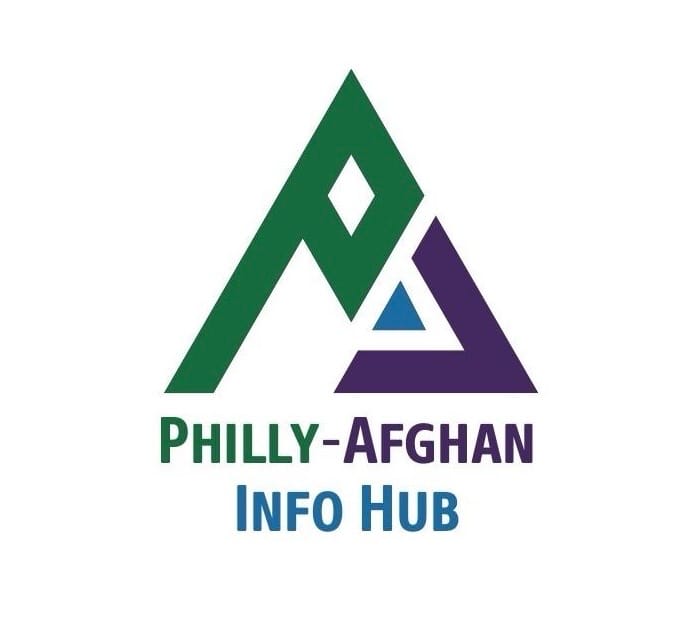Part 3 – Resettling in a New Land
Arriving in a new country is only the first step. Afghan families in Philadelphia are finding ways to settle—through housing, education, and work—while discovering support from neighbors and volunteers. Each step forward is part of building a stable and connected life.

When Sayed Tariq Faryad arrived in Philadelphia with his family in 2021, he carried the same hopes many newcomers do: safety, opportunity and a better future for his children. But his expectations of life in the U.S. were quickly tempered by the realities of resettlement.
“I was expecting that life in America would be very comfortable,” Tariq said. “And I was expecting to receive some support from the government to continue my higher education. But these two never happened.”
While his family did receive short-term assistance, which helped them with housing, food, medical insurance and limited job support, Tariq described it as “very short and a little support.”
According to Rabbaa, There are 10 national resettlement agencies that are federally contracted under the government through USRAP. These resettlement agencies provided support for refugees within the first 90 days of their arrival. This support includes case management, medical documents, connecting refugees with family, airport pickup, legal documentation, housing, medical assistance, job assistance, school enrollment for children, ESL classes and providing them with some money.
Nationalities Service Center (NSC), Bethany Christian Services (BCS), Catholic Social Services (CSS) and HIAS PA were all instrumental in resettling thousands of Afghans within Philadelphia who were fleeing the Taliban.
According to Rabbaa, the Afghan refugees coming to the U.S. in 2021 are the highest since the Vietnam War, with the Vietnamese arriving in the 1980s in huge numbers. The U.S. was not set up to handle the number of Afghan immigrants coming in, but was able to settle more than 70,000 in one year. This was done through a co-sponsorship program where regular citizens served as volunteer case managers to assist in resettling Afghans. These co-sponsors could be groups of people or families helping out the Afghans. Co-sponsorships also lasted longer than the 90 days.
For Mirwais - Mohmaad Yonus and his family, who entered the country in 2022, they were sponsored by a group of 18 families known as WISH, many of whom are affiliated with a church. They played a crucial role in the early months of resettlement, offering support with essentials like housing, job searches, transportation, schooling, and even helping him secure his driver’s license.
“The WISH team sponsored me and my children to come to the U.S. and helped us with basic needs such as a car, license, job search, housing and school for the kids,” said Mirwais.
Three years later, their support continues in the form of regular consultations and guidance.

Mirwais Mohammad Yonus, an Afghan father of six, rebuilding life with his family in Philadelphia after arriving in the U.S. in 2022. Photo by Chris Shaddock.
When USRAP was halted, the resettlement agencies lost 70 to 80 percent of their funding, depending on the non-profit. Due to losing this federal funding and because there are so few refugees coming in, their resettlement services are either no longer available or have been reduced to an extreme capacity, said Rabbaa.
Since Shahir’s family arrived in 2025, they were not able to get assistance from resettlement agencies in the same way other Afghans had prior. However, HIAS was able to connect them with the volunteer group, Bucks County Interfaith Coalition for Refugee Resettlement (BCICRR), which assisted his family in receiving social benefits, documentation, renting a house and helping them with traveling to necessary appointments.
“They have volunteered to drive me to work,” Shahir said. “I am looking to get a car for me, but they are so nice that they are still driving me to work.”
Even with support, uncertainty remains for many Afghan families navigating legal and bureaucratic obstacles… [Read Part 4 →]
